Business Agility Conference UK 2024: Leading through Complexity
- Dates
- Wednesday, September 25, 2024 - 09:30 to 18:30
-
Location
- Milton Keynes OU Campus
The Open University’s Business Agility Conference gathers leading thinkers and practitioners in organisational transformation to exchange knowledge and discuss the systemic improvements being implemented by leaders and managers in some of the UK's largest institutions.

Many organisations face difficulties transitioning to new working methods that allow for greater agility, the incorporation of digital technologies, and fulfillment of social responsibility commitments. The issue often lies in outdated thinking and behaviours that are subtly inappropriate for today's complex and uncertain environment. Where Goldsmith (2013) said: 'What got you here, won't get you there', this event seeks answers to the question ‘What should we be doing differently?’
Limited ‘early-bird’ tickets to the conference are available at £60. Regular price is £75. Prices include lunch and refreshments, a tour of the University’s beautiful campus, and several networking opportunities.
To book on one of the available pre-conference workshops running concurrently on Tuesday, please select this link: Pre-conference. Workshops must be booked separately.
Catering
Lunch and refreshments included. Vegan options are available and ingredient allergens posted. Please notify us if you have any further dietary requirements.
Arrival and networking in the Hub from 8:30am and after 5:00pm.
Conference Day - Wednesday 25 September 2024
The Open University is delighted to be collaborating with the Business Agility Institute UK (BAI UK) to deliver this conference.
Please note there are two separate tracks. Attendees must book either the BAI UK Conference track or The Open University track.
The Open University track
BAI UK Conference track

Please visit the BAI UK's conference page for more details, agenda and booking information.
Agenda
08:30 — 09:15 Arrival, registration and refreshments
09:15 — 09:30 Welcome
09:30 — 10:15 Keynote: Resilience, agility and anticipation. Prof Dave Snowden, Chief Scientific Officer, The Cynefin Company
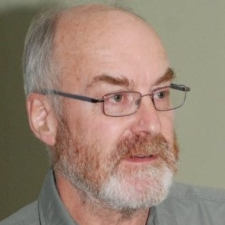
About the session: Resilience in the face of growing uncertainty is a key need in the public and private sectors. The Cynefin Centre and Future Systems Directorate of the EU recently published a field guide to managing complexity (and chaos), which focuses on how to manage when a crisis hits, but more importantly, how to create an organisation able to handle the unknown & unknowable unknowns. The field guide is based on complexity science. In this keynote, the principal author of the guide will outline the five key steps that underpin the approach and update the guide in the field of risk reduction in the face of inherent uncertainty. This will include new alternatives to scenario planning and understanding where change can be achieved at lower cost and with increased impact and effectiveness.
About the speaker: Dave is a popular and passionate keynote speaker on a range of subjects and is well known for his pragmatic cynicism and iconoclastic style. His work is international in nature and covers government and industry looking at complex issues relating to strategy and organisational decision-making.
Dave is the creator of the Cynefin Framework and originated the design of SenseMaker®, the world’s first distributed ethnography tool. He is the lead author of Managing complexity (and chaos) in times of crisis: A field guide for decision-makers, a shared effort between the Joint Research Centre (JRC), the European Commission’s science and knowledge service, and the Cynefin Centre. His paper with Boone on Leadership was the cover article for the Harvard Business Review in November 2007 and won the Academy of Management award for the best practitioner paper in the same year. He has previously won a special award from the Academy for originality in his work on knowledge management.
10:15 — 10:45 Leading, deciding and acting in conditions of radical uncertainty. Mark Fenton O’Creevy, Professor of Organisational Behaviour, The Open University Business School
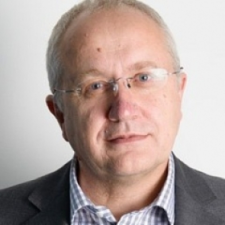
Prof Mark Fenton-O’Creevy will draw from his research, the work of a national network of practitioners and researchers and an open course he created on Management of Uncertainty: Leadership, Decisions and Action. He will engage the audience in a discussion of what we know about leading under uncertainty and what we have learned faced with a pandemic, Brexit, a European war and geopolitical instability.
About the speaker: Mark Fenton-O’Creevy, Professor of Organisational Behaviour at The Open University Business School, is an educator researcher with a profound interest in the relationship between formal and informal learning who has acted as academic advisor to a range of TV documentaries.
He has a long standing interest in the role of emotion in the financial decision-making of both finance professionals and broader publics and has studied the ways business and management practices develop and are transformed as they are translated between different settings.
10:45 — 11:15 Refreshment break
11:15 — 12:00 Disrupting Through Conversation, Better Conversations Foundation
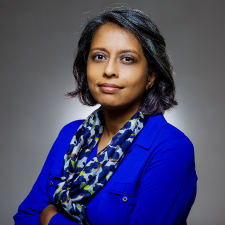
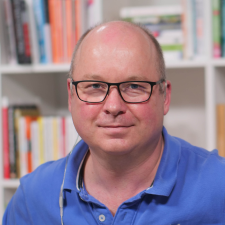
In this interactive session, Chandima and Simon from the Better Conversations Foundation will explore how they are disrupting traditional training and work culture. Just as Open Source has led to significant innovation in technology, we believe it can revolutionise the training industry.
The Foundation strives to help people be themselves and connect with others to foster better relationships, decisions, and outcomes. By distilling complex topics into relatable concepts and applying a scientific approach, we are reinventing the way we approach soft skills training.
We’ll cover the basis for Better Conversations, our model for open-sourcing learning and what that means for leaders and managers.
About the speakers: Chandima Dutton is the CEO and co-founder of the Better Conversations Foundation. Drawing from a deep and varied background including strategic planning, technology, coaching, and management in both large and small organisations, Chandima brings a unique perspective on the power of meaningful conversations.
Simon Coles is the CEO of a successful privately owned tech company and co-founder of the Better Conversations Foundation. He built the company from start-up to a mature business, based on the principles of open and honest communication. That 20-year journey led to the creation of the Foundation, to share the lessons learned and to help people be more effective at work.
12:00 — 12:45 The Self as Trespasser: Social Leadership at the Intersection of Systems, Julian Stodd, CEO Sea Salt Learning
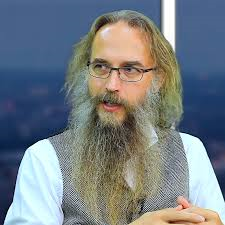
About the session: This session brings a perspective of the Social Age providing a new context for organisations, radically connected and inhabiting systems of power that rebalance away from the formal into the social. In this session Julian will walk us through four central concepts of an evolutionary pressure to which organisations must adapt:
- The Context of the Social Age - considering the evolution of our organisational context, and the impacts for engagement, resilience, innovation and change.
- The Organisation as Ecosystem - exploring a multi-dimensional view of the organisation, with a focus on light and shadows, and the relationship between ‘self’ and ‘system’.
- Boundary - Motion - Trespass - in the most fragile part of this work, we consider the nature of boundaries, the idea of leadership as ‘motion’, and our responsibility to trespass. This is a conversation about knowledge, belonging, and identity.
- The Socially Dynamic Organisation - drawing together these threads, Julian will sketch a picture of the Socially Dynamic Organisation - one that is more guided than governed, and reconfigurable by design. This work is positioned within a broader evolved landscape where legacy structures of society are seen to evolve. This is a conversation about interconnection and humility.
About the speaker: Julian Stodd is a researcher, author, artist and explorer. His work explores the context of the Social Age, and how we lead, learn, adapt, and change within this new space. His work on Social Leadership has been adopted by organisations as diverse as Apple to the Church of England.
He is the founder of Sea Salt Learning, a global partner for change.
Julian’s work is held in a principle of #WorkingOutLoud, constantly shared and iterated, evidence based, but often wrong.
Julian has written 19 books and over 3,000 articles and posts.
12:45 — 13:45 Lunch, networking and tour of the campus
13:45 — 14:30 Inspiring success stories from the frontlines of Health Care Service Improvement. Simon Dodds, NHS consultant surgeon, founder HCSE and Journal Improvement Science
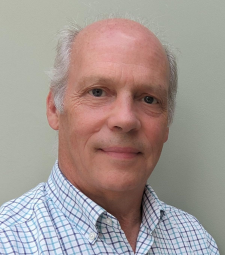
About the session: Simon's fascinating stories will apply validated principles of complex change in the context of health care service delivery. Attendees will learn the surprising lessons from the Achieving Clinical Excellence case study and hear some of the ‘Ah-Ha’ takeaways and impacts of the HCSE approach.
About the speaker: Fellow of the Royal College of Surgeons, Simon graduated from Cambridge University in 1982 with a joint 1st class honours in Medicine and Computer Science. He received the first NHS Innovation Award for Service Delivery for improving the Leg Ulcer service in North Birmingham using Improvement Science in 2004. During the COVID-19 pandemic, Simon's Health Care Systems Engineering approach led to the rapid development of a high-volume, COVID-safe drive-through assessment facility in Birmingham, completed in just three weeks. This model was adopted by primary care services and remains a key component of their operations. Simon works part-time as an NHS consultant surgeon and part-time as an independent HCSE practitioner and coach.
14:30 - 15:00 Complexity on the frontline of government. Andrew Walker, Local Government Research Institute
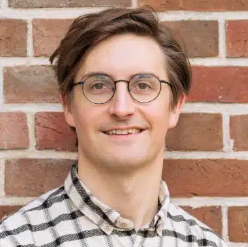
About the session: Local government faces a myriad of complexities, ranging from political pressures and financial challenges such as complicated governance structures and funding cuts to the need to transform service delivery through digital technologies to address local priorities. Shifting demographics and pressing environmental imperatives create ethical dilemmas forcing tough investment decisions, that necessitate resilience and innovation to maintain essential services. This session will explore some of the ways local government manage this delicate balancing act, navigates a patchwork of imposed policies and regulation and engages with stakeholders and partners to plan, collaborate and adapt to an uncertain future.
About the speaker: Dr Andrew Walker leads research at the Local Government Information Unit (LGIU), an independent, not-for-profit, membership organisation working to make local democracy around the world collectively stronger through shared ideas, resources and connections. LGIU guidance and analysis of policy, legislation and collaborative research is driven by the priorities ad challenges of its member organisations. Research projects range from the future of social care, climate action, inclusive local communities to the future of local government itself responding on the front line to an ever-more challenging fiscal environment.
15:00 — 15:30 Refreshments
15:30 — 16:00 Leading digital transformation. Emma Stace, Chief digital and Information officer at The Open University
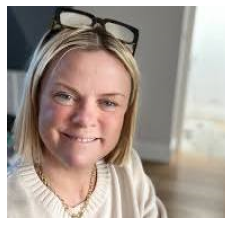
About the session: Emma will be sharing her own lessons in leading omplex change - the good, the bad, and the ugly – and will share the organising beliefs that now inform her current practice – including ditching the words of this title speech – ‘digital’ and ‘transformation’.
About the speaker: Emma has deep experience of leading complex projects and programmes enabled by technology. With over two decades of leadership experience, Emma has previously held senior roles including Chief Digital Technology Officer at the Department for Education and Chief Information Officer at the Department for Business, Innovation and Skills. These roles focused on improving public services for citizens as well as delivering operational efficiencies.
16:00 — 16:30 Harnessing Diversity to Solve Complex Problems. Waqās Ahmed, Research fellow, The Open University, Assistant Professor, The London Interdisciplinary School
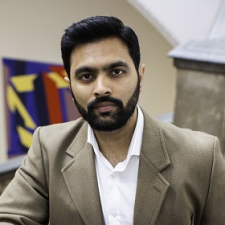
About the session: Diversity is in danger of being a policy that organisations see as a box to be ticked. Superficial initiatives fail to harness the true value of diversity nor address the inequalities that are perpetuated by a lack of it. In this talk Waqās Ahmed will explore how organisations expand their thinking and understanding as well as unleashing creativity to innovate and explore their response to complex challenges. Drawing on his work with UNESCO and research on interdisciplinarity in leadership development, Waqās will make the case for truly utilising diversity as a business strength and incorporating it in your leadership practice.
About the speaker: Waqās Ahmed is Founding Faculty and Assistant Professor at the London Interdisciplinary School. He is Executive Director of the Khalili Foundation, founder of the Da Vinci Network and Chief Strategy Officer of Earth 300. He has degrees in economics, international relations,and neuroscience and is a published author. His book The Polymath explores human versatility and its role in understanding and tackling complex world problems
16:30 — 17:00 Summary conversation Chaired by Liz Moody and featured speakers and guests
This session will review the provocations and ideas that have arisen during the day and be an opportunity for delegates questions to be addressed by speakers.
Book your place on the OU track here
Pre-conference workshops - Tuesday 24 September 2024
Choose from one of the available pre-conference workshops running concurrently on Tuesday. Workshops must be booked separately.
Complimentary access is available to workshop attendees.

Business Agility Workshops
Led by BAI UK.
More information and booking link

Engagement, complexity and using distributed intelligence to achieve more, with less
Led by Dave Snowden.
More information and booking link

Managing flow in a clinical setting – master practical skills in a one-day 'flow' workshop
Led by Simon Dodds.
More information and booking link
Access and accessibility
Free parking available in the south West car park opposite the Michael Young building followed by a 5-10-minute walk to the Hub theatre complex.
Milton Keynes (central) coach and railway stations are approximately 15-minutes away by taxi.
The campus is fully wheelchair accessible.
Questions or need help? Please email [email protected]
Conference hosts
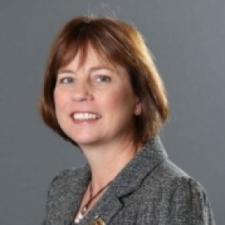
Liz Moody (Conference Chair): Former Director of Executive Education, Liz Moody is a Senior Lecturer in the Open University’s Business School. Focusing on the leadership and management behaviours that encourage employee engagement, Liz both steered and supported transformation programmes with some of the largest UK public, private and third sector organisations.
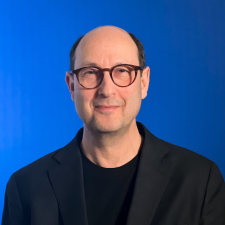
Russ Lewis (Co-organiser): Having completed a professional doctorate in which he found managing tension to be critical in organisational transformation, Russ joined the OU as lecturer in Systems Thinking in Practice in April 2024. He seized the opportunity to deliver on the university’s strategy for external engagement and knowledge exchange by bringing practitioners and academics together on campus for this interdisciplinary conference.
Acknowledgements
The Open university is grateful to Systems Innovation London Hub for its media support of the conference.


